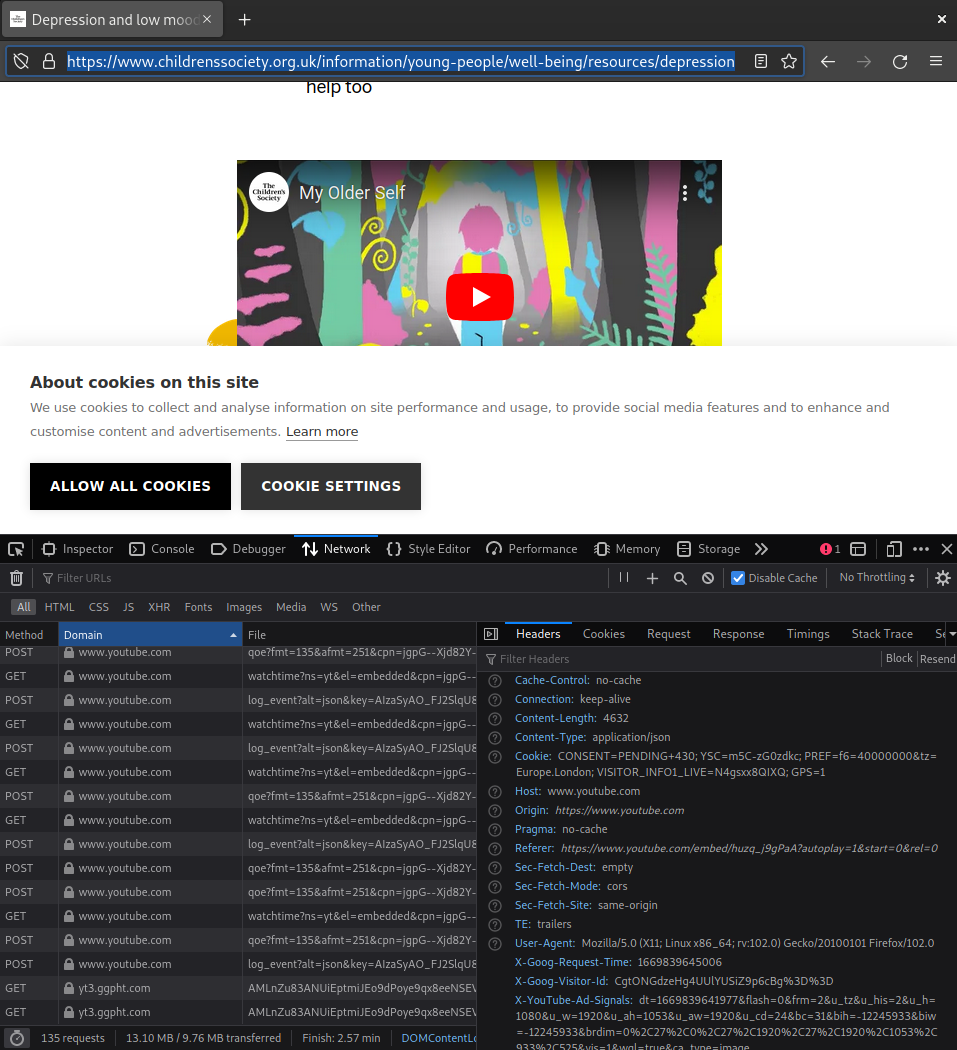The Children's Society
What did the society get wrong?
A complaint of a similar nature to the NSPCC concern has been registered with The Children's Society.
The Children's society website includes a section for Young People with some articles, like this on Depression, that include video content.
The video content was hosted using YouTube embeds and therefore directing troubled children to the online harms risks of YouTube.
The embeds were also not using YouTube's privacy enhanced mode. Thus, from a privacy perspective this was a worse situation than the Childline situation currently.
Raising the complaint
30th November 2022, The Children's Society and the ICO received a complaint detailing how The Children's Society were sharing data with YouTube.
The complaint included an

Their Response
2nd December 2022, their data protection office responded.
"The Children’s Society is currently reviewing these and depending on its findings will take necessary action to ensure compliance with data protection legislation and safeguarding children and young people."
YouTube Has Been Removed
Later in December 2022, it appeared that the YouTube embeds in the site have been removed and replaced with Vimeo embeds.
Is Vimeo safe for kids?
No
The site includes mature content and if you want to search through it's probably got a fair amount of unsavoury content on there.
It does appear that the integration is not as keen to push content recommendations and adverts, so perhaps a child using Children's Society vimeo embeds is less likely to be exposed to online harms; but if a parent is concerned they should probably be blocking Vimeo and a children's charity should probably not be integrating with it.
Depending on the Children's Society's next response I may go into more details about how harmful, but if they choose to remove Vimeo quickly it seems pointless.
Does Vimeo respect privacy?
At a glance it seems better than YouTube, but is still not anonymised and the Vimeo privacy policy suggests their services are not for under 16s; it also advises that they use collected data for quite a few purposes (although how they do so is less obvious than the very obvious manner in which YouTube uses browsing data).
Therefore, the complaint has now reached another step of asking the Children's Society to stop using the Vimeo integration.
Still waiting...
The Children's society have obviously gone to some lengths to swap across to Vimeo for hosting their video.
However, this appears to be two steps forwards, one step back - safeguarding risks are definitely improved, but privacy still needs work.